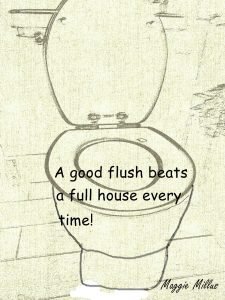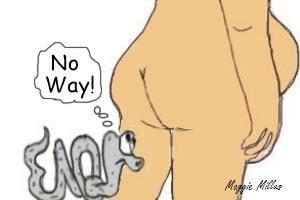.
I’ve heard a lot of people complain about the political insiders in government. They believe elected officials who spend a long time in office become ineffective. But I’m not so sure it’s a good idea to fill so many jobs with outsiders, people who lack experience and may not know what they are doing.
Myself, I prefer to look for the most experienced people to fix problems. Although I’ve tried to be open-minded about this, I’m concerned that political issues will be exacerbated by inexperience. How do you ferret out incompetency in a candidate if you rule out experience? How do you know someone who doesn’t know what they are doing will know what to do when the time comes? Are they going to have some built-in radar that will tell them how to do the right thing or make the right decision?
So, what if I did want to go to an outsider to take care of another problem, like my health? Would I go to:
- A plumber instead of a cardiologist? Plumbers deal with pipes. Pipes move fluids just like veins and arteries, often under pressure. And, when a pipe ruptures, it can do a lot of damage, just like an aneurysm. Arteries with plaque, pipes with sewage gunge? Does it matter? Both have a flow problem. But, as far as I know, a clogged toilet will only make a mess and unless it explodes, it’s unlikely to kill you.
- Roto Rooter or a proctologist? If I wanted to know what I had for dinner last night, I could call Roto Rooter or a proctologist ( aka colorectal specialist.) Both explore passages where the sun don’t shine and either one can flush a stopped up drain or colon. But one is a greater pain in the ass and nobody wants to hear that their doctor is going to put a snake up their ass.
- A spelunker rather than a gynecologist? They are explorers known for getting into tight spots.There is no crevice too small. Both will use gloves and headlamps. A spelunker, however, may use ropes and harnesses. I’ve never heard of a gynecologist doing that; stirrups are bad enough.
- A hydrologist in place of a urologist? . Both are concerned with water volume, stream flow, and leakages. They can have rock hard perspectives especially when it comes to stones. While a hydrologist may extract water from indurate ground, a urologist might want to go digging for stones in your kidney and blast them out with sonic shock waves. Another difference: some leaks are more embarrassing than damaging.
- Concrete cutter and driller for a dentist? Both do core drilling. One of them can drill a lot deeper than the other, almost all the way to China. Your dentist will never make it that far but if he or she shows you their brand new Bosch 11335K 35lb 15 Amp 1-1/8-inch Jack Hammer, find another dentist!
- A carpenter for an orthopede? Hammers, mallets, saws, drills, power tools, chisels, screws and wire are the tools of a carpenter…and an orthopedic doctor. Femur neck fracture? You can be the ultimate outsider. Just get out a big bottle of Scotch, your Dewalt Deluxe ScrewGun, and fix it yourself!
- Neurologist or electrician? Brains and houses use electricity. They have gobs of wiring. And a lot of it may be shorted out. Out of wack. Or even worse, dead. Neurologists and electricians have to deal with this faulty wiring. But most people with electrical problems in their homes don’t have mental issues unless those problems become chronic and aren’t fixed. And if your brain shorts out on you, you won’t need to worry about sparks or a fire, just get out the Xanax, Valium, straitjacket, or whatever…
Frankly, I think I’ll live a lot longer if I choose a trained and experienced medical specialist. On the other hand, if I lose my health insurance, I may have to opt for the medical outsider. It may not be safer, but it will be cheaper.
See also:
- Clogged toilet leads to infected foot which has to be amputated. http://blogs.lawyers.com/attorney/personal-injury/foot-amputation-caused-by-clogged-toilet-4827/
- You’re more likely to be injured by a toilet than a shark. http://www.care2.com/causes/youre-more-likely-to-be-injured-by-a-toilet-than-a-shark.html




